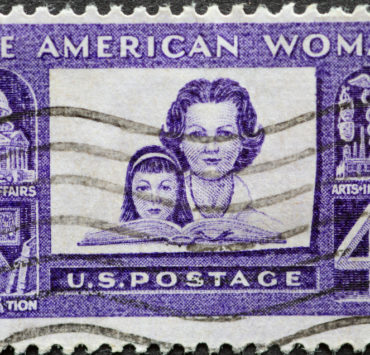Tribal Women Leaders in History

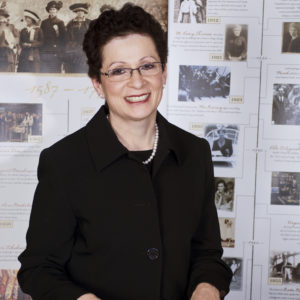
Jill S. Tietjen, PE, is an author, national speaker, and…

Charlotte S. Waisman, Ph.D. is a national champion and advocate…
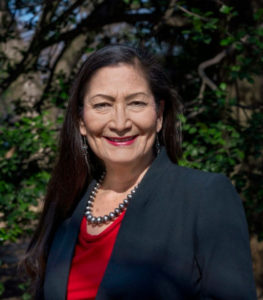
Secretary of the Interior
In 2021, Deb Haaland, of the Laguna Pueblo in New Mexico, became the first Native American Secretary of the Interior. A single mother who grew up in a military family, Haaland, put herself through college, earning her bachelor’s and her law degree from the University of New Mexico. She ran a small business, served as a tribal administrator and was the first woman chairperson of the Laguna Development Corporation Board of Directors. She made an unsuccessful run for Lieutenant Governor of New Mexico in 2014. In 2018, she ran for the U.S. House of Representatives and was elected as one of the first two Native American women in the U.S. Congress. She was re-elected in 2020.
Haaland follows in the footsteps of other Native American women who have left all of us the important legacy of being strong leaders. In this column, we profile Nancy Ward, Sarah Winnemucca, Annie Dodge Wauneka, and Wilma Mankiller. These leaders literally fought in battle, fought for the rights of their people, and worked to make lives better for all.
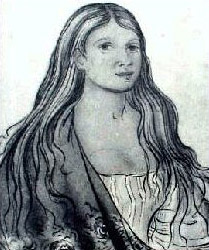
Cherokee leader Nanyehi (Nancy Ward) gained renown when she took her husband’s place in the battle of Taliwa (fought in 1775 in what is present-day Georgia) between the Cherokee and the Creek tribes. Her efforts helped the Cherokees win decisively. For her courage, she was named Agi-ga-u-e (Ghigau – Beloved Woman). Ward headed the influential Woman’s Council and was the only female voting member of the Council of Chiefs. Later, Ward saved a white woman from a raid and nursed her back to health. The woman, Lydia Bean, brought two of her cows to the Cherokee settlement and showed Ward a loom weaving technique. Ward learned from Bean how to care for the cattle and how to make butter and cheese. Ward then brought this knowledge of dairy products to the Cherokee nation. Ward spoke often and passionately about peace between her people and the increasing number of white settlers who were infringing upon Cherokee Land.
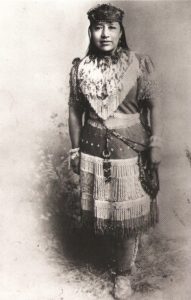
Northern Paiute Native American Sarah Winnemucca was born in Nevada, the daughter of a Paiute Chief; she was educated in California. In 1865, while she was away from the tribe, her mother and other family members were killed by the U.S. Cavalry. As a result, Winnemucca became an advocate for the rights of Native Americans, speaking across the country and lobbying the U.S. Congress. She was able to free her father and other tribesmen during the Bannock War of 1878 and subsequently she served as an Army scout against the Bannock tribe. Her book, Life Among the Paiutes: Their Wrongs and Claims, published in 1883, is both a memoir and a history of her people. She gave many lectures around the U.S. after the book’s publication. She was able to speak with President Hayes and the Secretary of the Interior about returning her people to their lands on the Malheur Reservation. Although legislation was passed enabling the return of Paiute land, it was never enacted. Winnemucca eventually returned to Nevada and started a school for Native American children. She has been inducted into the National Women’s Hall of Fame.
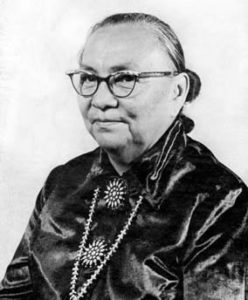
Born on the Navajo Reservation in Arizona, Annie Dodge Wauneka was first elected to the Navajo Tribal Council in 1951. She served on that council for 27 years. With her knowledge of nursing, she was asked to lead the health committee in 1953 to address the issue of tuberculosis on the reservation. As she knew both English and Navajo, she compiled an English-Navajo dictionary to allow white doctors and Navajo medicine men to communicate. She launched a radio program that was reported entirely in Navajo; the program focused on ideas that brought more cleanliness and modern western medical practices to the reservation. The first Native American to receive the Presidential Medal of Freedom (1963), Wauneka helped eradicate tuberculosis from the reservation. She also significantly reduced infant mortality by encouraging women to have hospital births for their babies. Wauneka received an honorary doctorate of public health from the University of Arizona (1976) and has been inducted into the National Women’s Hall of Fame.
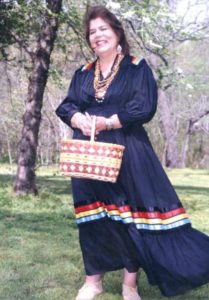
The first female chief of the Cherokee Nation, Wilma Mankiller worked to improve the education and health care systems, as well as the government of her people. Mankiller is recognized by many titles – activist, social worker, community developer. But she is best remembered when after many years of service to the Cherokee Nation, in 1985, she was elected as the Principal Chief. She served for ten years until her own ill health forced her to step down. The recipient of the Presidential Medal of Freedom, Mankiller said “Prior to my election, young Cherokee girls would never have thought that they might grow up and become chief.” She also said, “I advise young people to always be fully engaged. Speak out against injustice. Don’t lead a moderate life. Don’t let society define who they are. No one needs to waste their lives living someone else’s dream.” She authored the bestselling autobiography Mankiller: A Chief and Her People. Among her numerous honors, Mankiller has been inducted into the Oklahoma Hall of Fame and the National Women’s Hall of Fame.
Many noteworthy quotes can be found in Mankiller’s biography. One we find particularly significant is “In Iroquois society, leaders are encouraged to remember seven generations in the past and consider seven generations in the future when making decisions that affect the people.” Think deeply about her words as we remember that women participate and contribute to every area of our lives.
These women tribal leaders, as well as many other women, almost all of whom we have not heard about nor learned about in school, are profiled in our book, Her Story: A Timeline of the Women Who Changed America. Help us by continuing to tell the stories of the women who came before us, on whose shoulders we all stand. Tell young women especially so they understand that they can dream BIG, and then make their dreams a reality.
Author: Jill Tietjen
Jill S. Tietjen, PE, is an author, national speaker, and an electrical engineer. After 40 years in the electric utility industry, her professional focus is now on women’s advocacy, worldwide. She blogs for The Huffington Post, speaks nationally on the accomplishments of women, nominates women for awards, and continues to write books (8 published to date), following in the footsteps of her bestselling and award-winning book, Her Story: A Timeline of the Women Who Changed America (written with Charlotte Waisman). She is a frequent keynote speaker as her positive energy and her ability to relate to the audience result in inspired and energized listeners. The recipient of many awards, her induction into the Colorado Women’s Hall of Fame in 2010 remains one of her most treasured.

Jill S. Tietjen, PE, is an author, national speaker, and an electrical engineer. After 40 years in the electric utility industry, her professional focus is now on women’s advocacy, worldwide. She blogs for The Huffington Post, speaks nationally on the accomplishments of women, nominates women for awards, and continues to write books (8 published to date), following in the footsteps of her bestselling and award-winning book, Her Story: A Timeline of the Women Who Changed America (written with Charlotte Waisman). She is a frequent keynote speaker as her positive energy and her ability to relate to the audience result in inspired and energized listeners. The recipient of many awards, her induction into the Colorado Women’s Hall of Fame in 2010 remains one of her most treasured.

Charlotte S. Waisman, Ph.D. is a national champion and advocate for women as a professor and keynote speaker. A corporate leader, executive coach, and facilitator, she conducts leadership workshops nationally.


